Mesa, Arizona: America's First Autism Certified City Leading Inclusive Travel
How Mesa, Arizona, is welcoming autistic visitors and improving accessibility for all travelers
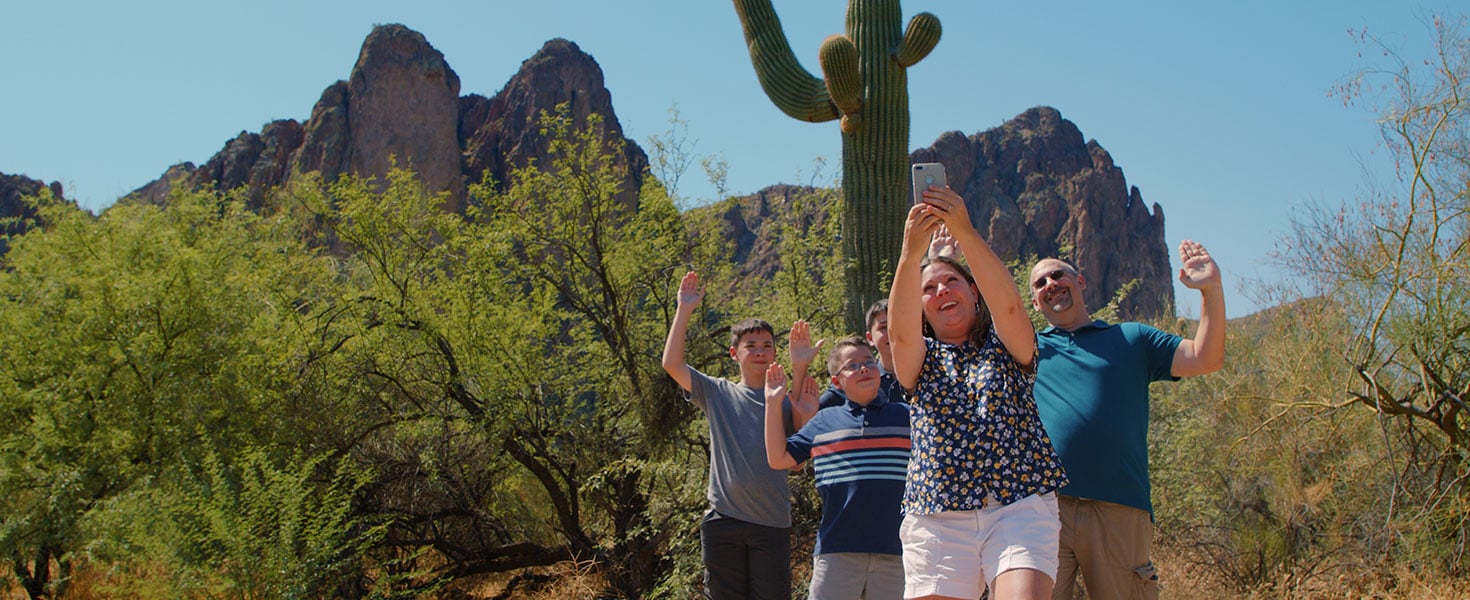

For many, planning a vacation can be riddled with questions—what to pack, where to go? But for those who travel with autistic or neurodiverse companions, preparing to travel can be overwhelming. Just east of Phoenix, the city of Mesa, Arizona, is determined to lighten that load. That’s why in 2019, Mesa became the first-ever Autism Certified City in the United States.
The new designation came about after Marc Garcia, president and CEO of Visit Mesa, was traveling with his son who has autism. The Garcia family encountered a negative experience with the hospitality staff, and he vowed to make things better for those traveling with autism or other forms of neurodivergence. He started in his own beautiful backyard of Mesa.
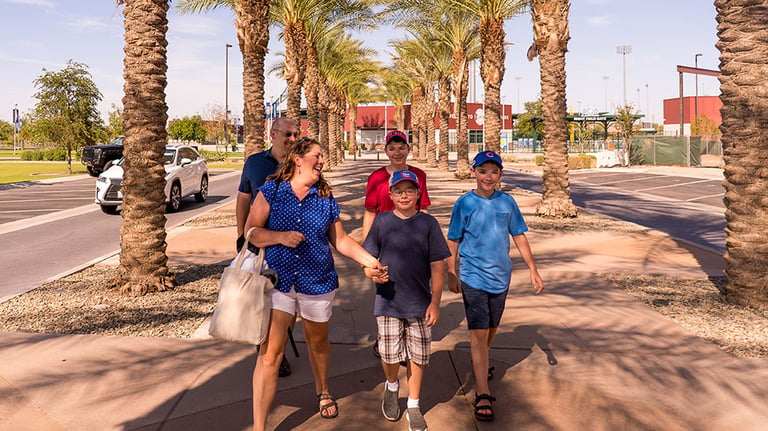
To be certified, Mesa had a high bar to reach—at least 80% of guest-facing staff had to receive training in autism. That led to over 60 businesses and 5,000 individuals completing their certification—not an easy undertaking, but worth it.
From roaming with dinosaurs in Mesa’s Arizona Museum of Natural History to playing at Mesa’s many parks, those on the spectrum have much to explore. Here, mild rivers, wild horses, and fiery mountain sunsets relax into museums, fine dining, and art.
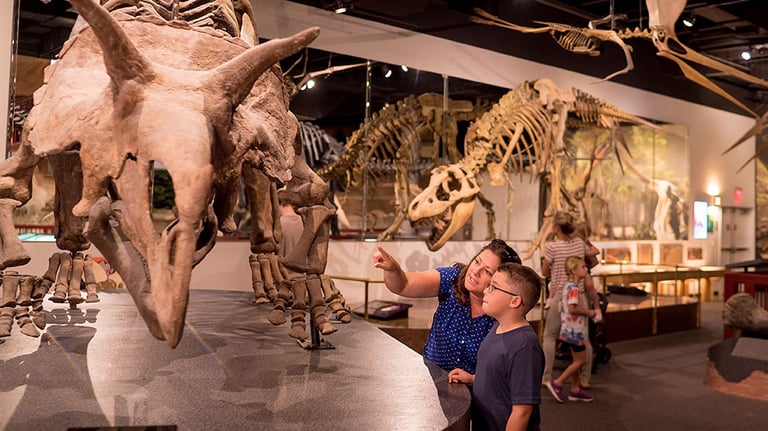 Enjoying the museum. Photo courtesy of Credit Visit Mesa
Enjoying the museum. Photo courtesy of Credit Visit MesaWhy sunflowers? Inside Mesa's accessibility
What’s more, Mesa is not stopping with autism. They’re stepping up to be America’s most accessible city. Mesa is making strides for those with visual impairments, mobility limitations, and other challenges.
One of the ways Mesa is making travel better for all, is sunflowers. The Hidden Disabilities Sunflower Program, provides free sunflower lanyards and bracelets to those who request them. This subtle symbol allows trained staff to be aware of and attentive to those who might need additional support. Mesa was the first city to adopt the program, which began in 2016 at the Gatwick Airport in England.
Mesa’s virtual tours offer visitors a 360-degree, full-picture view of what to expect before they arrive. That means, no guesswork in finding accessible parking, ADA hotel rooms, doorway sizes, etc. Guests can see what they’ll encounter ahead of time, resulting in less stress and better travel.
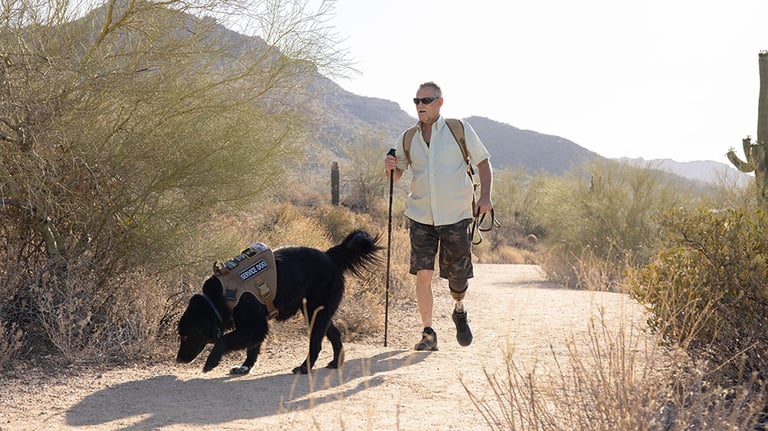
If vision impairment hinders travel, Mesa’s AIRA-guided visual interpretation services is a game changer for blind or low-vision visitors. This smart app connects visitors directly with a Mesa agent who can assist them through buildings, trip planning, and reading restaurant menus. Visual information is available to enhance engagement and independence.
And just for fun, families can use Mesa’s interactive digital passports to explore the city’s adventures and earn prizes. These pre-vetted hotels, attractions, and restaurants are ready to serve up memories. Likewise, Mesa’s Autism Geotouris a free, outdoor, treasure hunt scattered throughout Mesa’s certified autism centers and city parks.
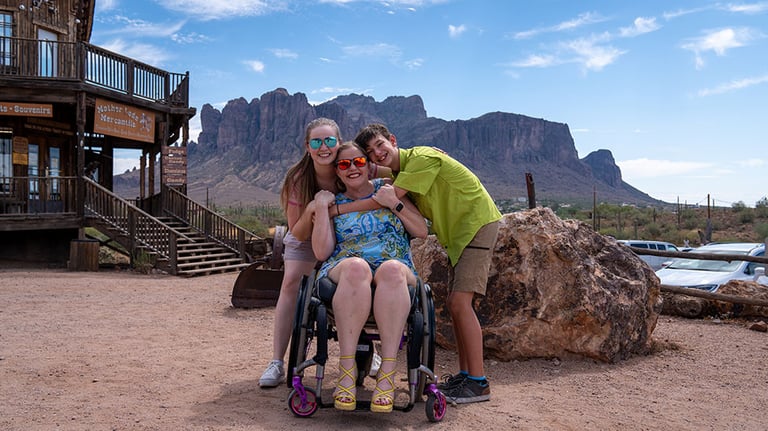
What's new for accessible travel?
What started with a bad travel experience for a Mesa family has morphed into something amazing. Since Mesa’s designation as an autism-certified city, other cities are looking to follow their example.
“I am on a call almost weekly at this point with other destinations asking for my advice on how to become more accessible, it’s an honor.” says Alison Brooks, vice president of Visit Mesa’s Destination Experience & Advocacy. “There is no question that this is a movement in our industry.”
Mesa’s latest initiative is also making a mark. In 2023, they became the first-ever destination-verified city by Wheel the World. This clever program creates a personalized profile with possible options for hotels and tours. Now, those in a wheelchair can navigate easier and make vacation memories like never before—thanks to Mesa’s sunny weather and hospitality.
